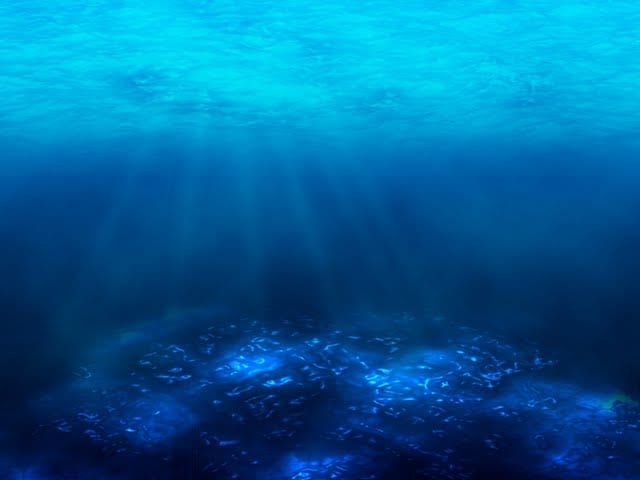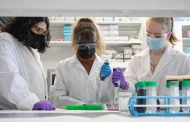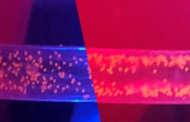Around four billion minute fibres could be littering each square kilometre of some of the world’s deep seas, demonstrating that plastic debris is now creating cause for concern in some of the remotest parts of the marine environment.
That is one of the findings of a pioneering international study examining the scale of the presence of microplastics at depths of up to 3500m in parts of the Indian and Atlantic Oceans, and the Mediterranean Sea.
Existing research had shown that in recent decades plastic debris has become almost omnipresent on the world’s coastlines, but the extent of its concentration close to shorelines had not increased in line with predictions based on the production and use of plastic.
However, the current study – led by scientists from Plymouth University and the Natural History Museum – indicates this may be because microplastics have sunk to the ocean floor, with the number of fibres recorded as being up to four times more abundant in the deep seas than in shallow and coastal waters.
In fact, the current study has led scientists to suggest – in areas of the Indian Ocean at least – that around 4 billion fibres per km² would be present in seamounts.
Read more: Minute Plastic Fibres Found in Abundance in the Deep Seas
The Latest on: Microplastics
[google_news title=”” keyword=”Microplastics” num_posts=”10″ blurb_length=”0″ show_thumb=”left”]
via Google News
The Latest on: Microplastics
- Researchers uncover new oceanic locations where microplastics are accumulating: 'Global initiatives are necessary to conserve these rich ecosystems'on April 27, 2024 at 3:15 am
If coral reefs die or dwindle in health, whole ecosystems could be affected. Researchers uncover new oceanic locations where microplastics are accumulating: 'Global initiatives are necessary to ...
- The presence of microplastics in archaeology sites could prompt a major industry rethinkon April 27, 2024 at 3:01 am
A team of scientists discovered microplastics at an archaeology site in York, which potentially have major consequences.
- Toxic chemicals from microplastics can be absorbed by the skin, study findson April 26, 2024 at 8:20 am
A new study used 3D human skin-equivalent models to examine how flame retardant additives in microplastics are absorbed by the skin. The findings show that several flame-retardant additives passed ...
- Another Crab’s Treasure: Best places to farm Microplasticson April 26, 2024 at 4:48 am
Another Crab’s Treasure Go to the Cave of Respite Moon Shell (this will be your save spot). Jump to the platform next to the Moon Shell (on the right of it if you are looking at the entrance).
- Where to Trade in Items for Microplastics in Another Crab's Treasureon April 25, 2024 at 9:00 am
You'll collect all sorts of junk in Another Crab's Treasure --here's what to do with it to earn some Microplastics.
- 5 Ways To Reduce Your Microplastics Exposure In The ‘Plasticene’ Eraon April 25, 2024 at 4:30 am
Emerging research shows microplastics—which are everywhere—are linked to health problems. Here are five ways to reduce your microplastics exposure.
- Earth Week underway as UN committee debates plastics and microplastics. Here's why.on April 23, 2024 at 10:29 am
Plastic has become ubiquitous in our environment. It's now considered "a crisis of global proportion," according to as United Nations' committee.
- Researchers working to keep microplastics from laundry out of water supplyon April 22, 2024 at 4:38 pm
Doing the laundry can also lead to microplastics polluting the water supply and oceans, as the particles are shed from certain kinds of fabrics. A group of researchers are working to create a device ...
- Microplastics found in food and water may spread from the gut to the brainon April 19, 2024 at 9:33 am
A new study conducted in mice found that microplastics can spread from the gut to other organs in the body, such as the brain, liver, and kidneys.
- Microplastics Found in Brain After Only 4 Weeks of Exposureon April 18, 2024 at 10:22 am
A new study found microplastics in the liver, kidneys, and brains of mice after only four weeks of drinking microplastic-tainted water. Microplastics are found in everything from water bottles to food ...
via Bing News








